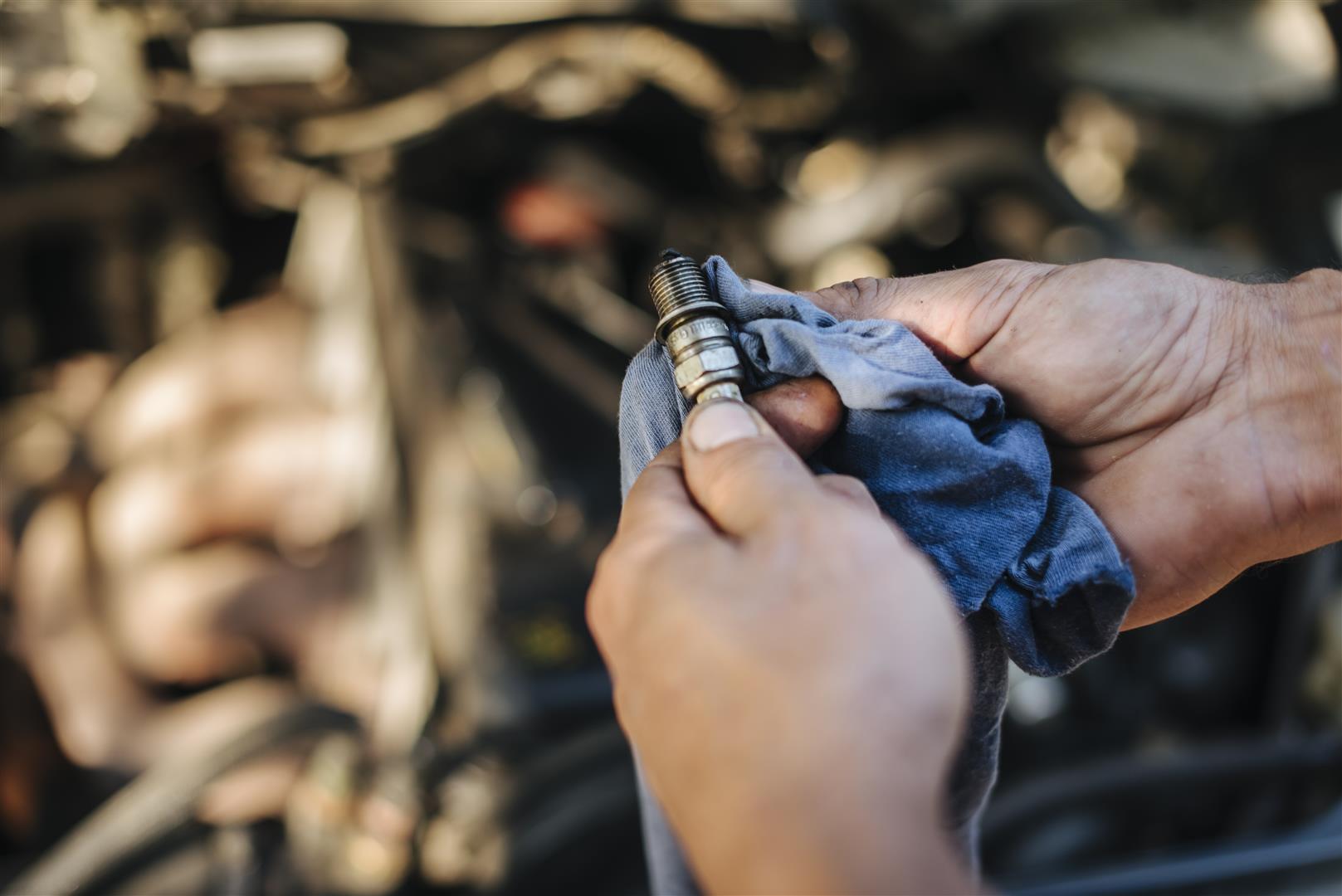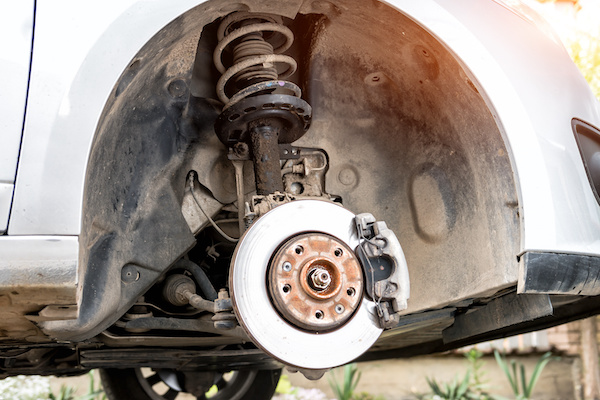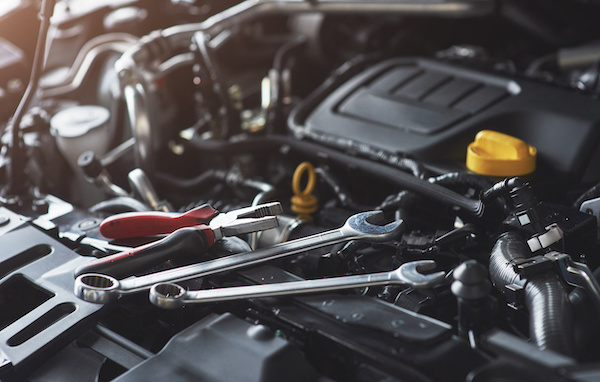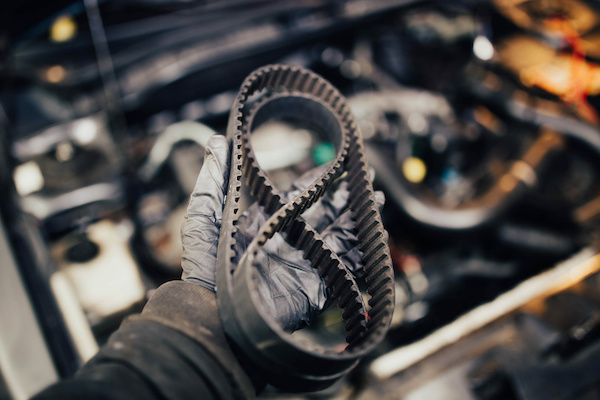Posted on 12/23/2022

These ignition components have a significant impact on the internal combustion engine of an automobile, affecting everything from performance to gas mileage. If you want the engine in your automobile to run at its best, they need to be well-maintained. Look at your car's owner's handbook to get the answer to the question, "How frequently should you replace spark plugs?" The recommended replacement interval for spark plugs is listed in the manual. Replacement is often needed every 30,000 miles, however this isn't always the case. Due to improvements in materials and ignition design, several current vehicles recommend replacing spark plugs every 100,000 miles. Since the plug may have telltale marks on it, you can get a fair idea of how the combustion process is functioning in this way. Black soot or charred stains on the plugs can indicate a problem that needs to be looked into further. Additionally, the spark plug gap needs to be examined and, if necessary, adjus ... read more
Posted on 11/23/2022
.jpeg)
It seems like gas prices aren’t dropping that much for the holidays, and it's not helping the hole in our wallets with all of these holiday expenses coming up. In fact, you're probably going to fill up more often this time of year than any other time. To get a better bang for your buck, here are some tips and tricks to improve your vehicle’s fuel economy. Tips on How to Get Improve Your Fuel Economy Use Loyalty Rewards Program. Many major gas stations have a free rewards program that you can join to save a few extra cents on gas. It might not seem a lot, but your savings will definitely add up over time. Get Rid of Dead Weight. Unless you operate a moving truck, you shouldn't be dragging around heavy items in your car. Avoid Abrupt Speeding and Braking. Try to maintain a constant speed to get the most out of your gas. And when you slow down to a stop, make sure it's a gradual ... read more
Posted on 10/31/2022
.jpeg)
Before you start driving your car, make sure you know how the power steering system warning light works. There are two main power steering systems today; hydraulic and electric power steering. A power steering warning light means a problem in your power steering system requires immediate attention. In hydraulic systems, the power steering warning light will appear either red or yellow, in the shape of a steering wheel with or without an exclamation mark. The warning will be a lit EPS in vehicles with an electric power steering system. What to Do When the Warning Light Appears As soon as the power steering warning light appears, pull over and stop the car as soon as it's safe. The following are the common causes of power steering problems and what you should do about them: Hydraulic Power Steering: These use a hydraulic system that contains hydraulic fluid. Low hydraulic fluid levels will immediately activate the warning light. Pull over and check the fluid lev ... read more
Posted on 9/27/2022

Some vehicles run louder than others, but they shouldn’t squeal every time you drive them. Sounds can be very helpful when diagnosing vehicle issues. If your car produces an alarming sound every time you drive or brake, be sure to bring your vehicle to a trusted auto repair shop. If you notice a squeak or squeal coming from your vehicle, it could be indicating any of the following problems: Worn Brakes - Brake pads are built with wear indicators and have a metal bar that gets noisy once they’ve worn down. It serves as a warning or reminder to replace your brake pads ASAP. Sometimes, it can be your rotors or calipers too. Dirty Brakes - If you’ve recently serviced your brakes, then worn brakes probably aren’t the issue. Often, dirt, dust, and other loose contaminants can cling onto the rotors and cause your vehicle to squeal. The noise should go away after a car wash or two. Loose Steering Wheel - If your car squeals whenever you turn or move yo ... read more
Posted on 8/26/2022
.jpeg)
Brake rotors are integral to the vehicle’s braking system. They play a role in helping cars slow down and come to a full stop. When you press on the brake pedal, force is transferred to clamp the brake pads onto the rotors. Over time, brake rotors go through wear and tear and eventually fail. Here is a guide on how to tell when you need to replace your brake rotors: 1. Your Vehicle Shakes When Braking If your steering wheel and/or seat vibrates when you apply the brakes, there’s a good chance that you need brake service. While you should hope that it is just the brake pads, warped brake rotors often cause this uneasy feeling. 2. You Hear Squealing or Grinding Noises Squealing noises during braking often point to worn brake pads. However, squealing or scraping when you’re not braking is a sign that your brake rotors need attention. Have a professional mechanic inspect your brakes to be sure. 3. You Notice Grooves on the Rotor You can walk around to physically ins ... read more
Posted on 7/27/2022

Whatever vehicle you drive, the manufacturer has preset a routine maintenance program to keep your car or or truck operating at peak performance. This is known as factory planned maintenance, or 30/60/90K maintenance, since the typical timetable for these procedures is every 30,000 miles or so. Unfortunately many drivers see this maintenance schedule as optional—after all, why take the car in if it seems to be running well? The maintenance plan, however, isn't a trick to get you to spend money at the auto repair shop—it's essential for the general health of your car and to avoid expensive and needless auto repairs in the near future. Why Should You Keep Up With The 30/60/90 Maintenance Plan? There are some very good reasons why the 30/60/90 maintenance plan is a good idea for your vehicle. Your warranty may be voided. It may prevent minor issues from becoming major ones, costing hundreds of dollars in repairs. It has the potential to extend the life of your ca ... read more
Posted on 6/27/2022

Have you ever smelt an awful odor emanating from your vehicle's air vents? The foul odor will jolt your senses whenever you switch on the air conditioner. Odors in the air conditioning system can arise from a variety of places. Your air filters, for example, might be clogged, or your air conditioner gas could be leaking. However, mold buildup is one of the air conditioning systems' most common causes of musty fumes. What exactly is the issue with mold? Odor The worst issue is mold's musty odor, which leaves passengers miserable. The more mold can grow, the more serious the situation gets. It Swiftly Spreads It spreads quickly as a fungus, becoming embedded in floor carpets and upholstery, and may cause the following conditions: Congestion in the nose Inflammation of the throat Wheezing Eye irritation is a condition in which the eyes get irritated. In difficult situations, it can impair lung function and lead to long-term health i ... read more
Posted on 5/26/2022

What is a Serpentine Belt? A serpentine belt is a long belt used to transfer power from one engine accessory to the next. The belt connects the alternator, air conditioning, power steering pump, and water pump. Some people will refer to the serpentine belt as a fan belt or an accessory belt. Older models of vehicles used multiple sets of accessory belts to function, but the design has since been streamlined to only need one serpentine belt. While using just one serpentine belt is efficient, the only downside is that damage to the belt can cause the entire car to stop working. If your serpentine belt break, the AC will stop working, you will lose control of the steering wheel, and the engine is in danger of overheating. Eventually, your battery will die, and the vehicle will lose all functions. In addition, since the serpentine belt is made from rubber, it might damage the engine accessories during a tear. This is why replacing your serpentine belt before it breaks is so important. W ... read more
Posted on 4/28/2022

Car noises are often a sign of something going wrong with your car. When you hear these sounds, it is best to have professionals check your vehicle. Here are a common vehicle sounds that indicate trouble: Clunking Sound Different factors can cause clunking sounds, such as worn-out ball joints and loose or damaged suspension parts. An inefficient or improperly adjusted brake system can cause this sound. Shuddering Noise This shuddering noise is like a rumble or shaking noise. The causes could be a cracked head gasket or worn valve seal. Too much oil pumped into the engine from a leaking oil pump can cause it. A faulty fuel injector can also cause this sound and excessive carbon buildup inside the combustion chamber. Thumping Sound This sound might mean that you have an exhaust leak, low tire pressure, or a faulty suspension component, such as shock absorbers or struts. The most common symptoms of the problem are vibrations in the steering wheel, shaking while driving at high speed ... read more
Posted on 3/28/2022

As winter fades away and the warmer months begin, your car needs extra care. If you were driving a lot during winter, chances are that your car's body gathered road salt which can cause rusting. You also need to think about your tires and battery. To help you figure out what to prioritize, here is a spring maintenance checklist for your vehicle. Wash Road Salt Take your car for a proper wash, including underneath to wash away road salt. Effective salt removal requires a lot of pressure. It will protect the paint job of your car, which will protect its resale value. Change Your Tires Your winter tires may not do well during warm weather. Winter tires are engineered to give traction on ice, but they will wear out quickly in spring and summer. Consider swapping them out and storing them away for later in the year. Check Your Wheel Alignment Driving in winter is likely to have interfered with your car's suspension. You might have hit a curb or driven through potholes. T ... read more